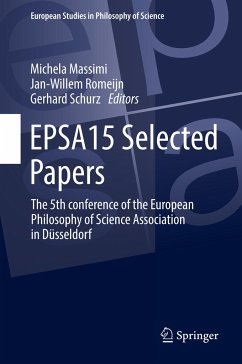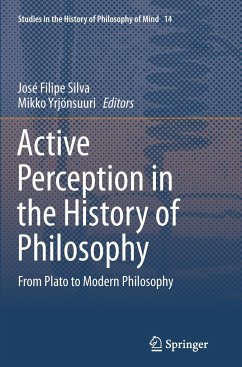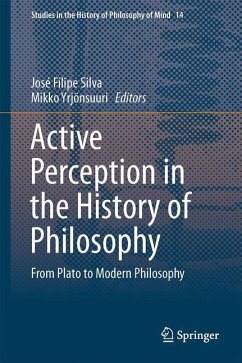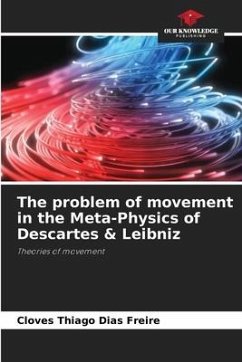
Eppur si muove: Doing History and Philosophy of Science with Peter Machamer
A Collection of Essays in Honor of Peter Machamer
Herausgegeben: Adams, Marcus P.; Biener, Zvi; Feest, Uljana; Sullivan, Jacqueline A.

PAYBACK Punkte
38 °P sammeln!
This volume is a collection of original essays focusing on a wide range of topics in the History and Philosophy of Science. It is a festschrift for Peter Machamer, which includes contributions from scholars who, at one time or another, were his students. The essays bring together analyses of issues and debates spanning from early modern science and philosophy through the 21st century. Machamer's influence is reflected in the volume's broad range of topics. These include: underdetermination, scientific practice, scientific models, mechanistic explanation in contemporary and historical science, ...
This volume is a collection of original essays focusing on a wide range of topics in the History and Philosophy of Science. It is a festschrift for Peter Machamer, which includes contributions from scholars who, at one time or another, were his students. The essays bring together analyses of issues and debates spanning from early modern science and philosophy through the 21st century. Machamer's influence is reflected in the volume's broad range of topics. These include: underdetermination, scientific practice, scientific models, mechanistic explanation in contemporary and historical science, values in science, the relationship between philosophy and psychology, experimentation, supervenience and reductionism.












